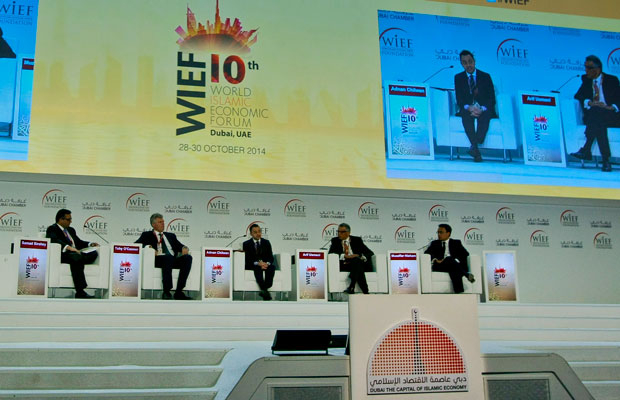
Dubai: Islamic finance will become a norm rather than an alternative — as it currently is — in the near future, driving the growth of small and medium enterprises (SMEs) and Islamic trade, said leading Islamic banking professionals at the 10th World Islamic Economic Forum (WIEF) in Dubai on Wednesday
The opening session on the second day highlighted the importance of developing a standardised documentation process to facilitate the growth of Islamic trade finance.
In his keynote address, Hussain Al Qemzi, Board Member of the Dubai Islamic Economy Development Centre and CEO of Noor Bank, said that SMEs play a large role in driving Islamic trade finance, adding that more advanced supply chain optimisation measures are needed to promote their growth.
At the panel discussion, Dr Adnan Chilwan, Chief Executive Officer of Dubai Islamic Bank, said that the potential for promoting Islamic finance among the Organisation of Islamic Cooperation (OIC) countries is tremendous and that Islamic finance and Islamic trade go hand in hand. “Islamic banking will not be an alternative but the norm of banking in the near future,” he added.
Muzaffar Hisham, Chief Executive Officer of Maybank Islamic Berhad, Malayasia, said that regulatory frameworks have a strong role to play in promoting Islamic finance, citing the strong growth in business between Malaysia, Indonesia and Singapore, following the introduction of governmental policies to promote trade. “The hurdles between policymakers must be cleared to boost Islamic trade finance,” he noted.
Venture capital funding
Arif Usman, General Manager, Global Head of Wholesale Banking, Abu Dhabi Islamic Bank, said that securing funding for start-up SMEs is a challenge, while Toby O’Connor, Chief Executive Officer, The Islamic Bank of Asia in Singapore, said that along with financial support, SMEs also need human support through adequate advisory services.
Dr Chilwan pointed out that venture capital funding is practically lacking today for SMEs, despite the great emphasis that the region places on promoting the sector.
Clear cut policies for liquidity transfer among OIC countries and the emerging role of Islamic finance in Sub-Saharan and East African nations were also highlighted at the panel discussion, which concluded on the note of optimism that Islamic finance is growing in the right direction and will claim its share in global trade finance.











